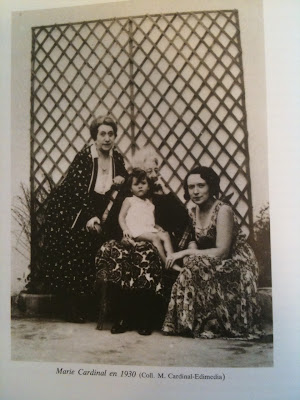According to Wikipedia.fr, the singer Bach (Charles-Joseph Pasquier) created it in Paris in 1914. The words were written by Louis Bousquet (1870-1941) and the music by Camille Robert who was born in Batna in 1878.
original text:
The song's origins anchor La Mule de corbillard further to Algeria while the lyrics tell a similar tale to the love between Pierre and Madeleine:
The song was not immediately popular. According to Manifestation who cite the following letter from Jean Bayol printed in the Algérianiste (number 3, 15 June 1985, pp. 71-72, my translation):
"I possess numerous documents and testimonies of great interest. Four years ago while following the roots of 'La Madelon,' I was able to go back to her father's birth.
Several Madeleines were born between 1873 and 1876 in Batna (because Batna is his birth town), (for example, Jeanne Madeleine Bretin born January 6, 1875 to Annette Bretin and an unknown father.)
It would have been too easy to pick whichever Madeleine among them.
But the information that I obtained from various sources allowed me to go back to her father.
We can thus respond to Monsieur Robert that Madelon was born in Batna and that it's there that Luis Bousquet [sic], who was originally from Perrignargues (Manifestation interjects - Parignargues, a town in the Gard) knew her and that it's in memory of her that he wrote this song.
The author of the song was not a soldier from Algeria.
He was in the 3rd division of Zouaves from Constantine.
When the three supplementary bataillons were created, he was moved to the 6th bataillon in Batna.
He says it himself, "I wrote this song in memory of a girl I met in Batna."
original text:
« Je possède de nombreux documents et témoignages d'un grand intérêt. Il y a 4 ans que je suis "La Madelon" à la trace et j'ai pu remonter jusqu'à la naissance de son père. Plusieurs Madeleine sont nées entre 1873 et 1876 à Batna (car Batna est bien son lieu de naissance), (par exemple Jeanne Madeleine Bretin née le 6 janvier 1875 de Annette Bretin et de père inconnu.) Il était trop facile de choisir parmi elles une quelconque Madeleine. Mais les renseignements que j'ai obtenus de sources diverses m'ont permis de remonter jusqu'à son père. C'est en me renseignant à la mairie que j'ai retrouvé celui qui allait devenir le père de Madeleine. Nous pouvons donc répondre à M. Robert que Madelon est née à Batna, que c'est là que Luis Bousquet originaire de Perrignargues (c’est Parignargues, village du Gard) l'a connue et que c'est en souvenir d'elle qu'il a écrit sa chanson. L'auteur de cette chanson n'est pas un militaire originaire d'Algérie. Il s'était engagé au 3ème Zouaves de Constantine. A la création de 3 bataillons supplémentaires, il fut affecté au 6ème bataillon à Batna. Il le dit lui-même : « J'ai écrit cette chanson en souvenir d'une fille que j'ai connue à Batna. »Why does any of this matter to me? I have been working on a book chapter entitled "Fixing the Past: Marie Cardinal's La Mule de corbillard" which analyzes the 1963 novel as an attempt to stop time for the Pieds-Noirs. While Cardinal is extraordinarily careful not to reveal the location of the novel, there are numerous hints at Algeria. The main character, Madeleine, lives alone on five hectares of land and hosts a French engineer named Pierre Landrieux. The two fall in love and begin to build a life together, but when her lover suddenly disappears, Madeleine (nicknamed Madelon by Pierre) begins the obsessive construction of a model cathedral. When World War II begins, Madeline loses control of her vineyards and begins a long spiral into vengeance, old age, and reconstructing memories.
The song's origins anchor La Mule de corbillard further to Algeria while the lyrics tell a similar tale to the love between Pierre and Madeleine:
Pour le repos, le plaisir du militaire,
Il est là-bas à deux pas de la forêt
Une maison aux murs tout couverts de lierre
"Aux Tourlourous" c'est le nom du cabaret.
La servante est jeune et gentille,
Légère comme un papillon.
Comme son vin son œil pétille,
Nous l'appelons la Madelon
Nous en rêvons la nuit, nous y pensons le jour,
Ce n'est que Madelon mais pour nous c'est l'amour
{Refrain:}
Quand Madelon vient nous servir à boire
Sous la tonnelle on frôle son jupon
Et chacun lui raconte une histoire
Une histoire à sa façon
La Madelon pour nous n'est pas sévère
Quand on lui prend la taille ou le menton
Elle rit, c'est tout le mal qu'elle sait faire
Madelon, Madelon, Madelon !
Nous avons tous au pays une payse
Qui nous attend et que l'on épousera
Mais elle est loin, bien trop loin pour qu'on lui dise
Ce qu'on fera quand la classe rentrera
En comptant les jours on soupire
Et quand le temps nous semble long
Tout ce qu'on ne peut pas lui dire
On va le dire à Madelon
On l'embrasse dans les coins. Elle dit "veux-tu finir..."
On s'figure que c'est l'autre, ça nous fait bien plaisir.
{au Refrain}
Un caporal en képi de fantaisie
S'en fut trouver Madelon un beau matin
Et, fou d'amour, lui dit qu'elle était jolie
Et qu'il venait pour lui demander sa main
La Madelon, pas bête, en somme,
Lui répondit en souriant :
Et pourquoi prendrais-je un seul homme
Quand j'aime tout un régiment ?
Tes amis vont venir. Tu n'auras pas ma main
J'en ai bien trop besoin pour leur verser du vin
{au Refrain}











